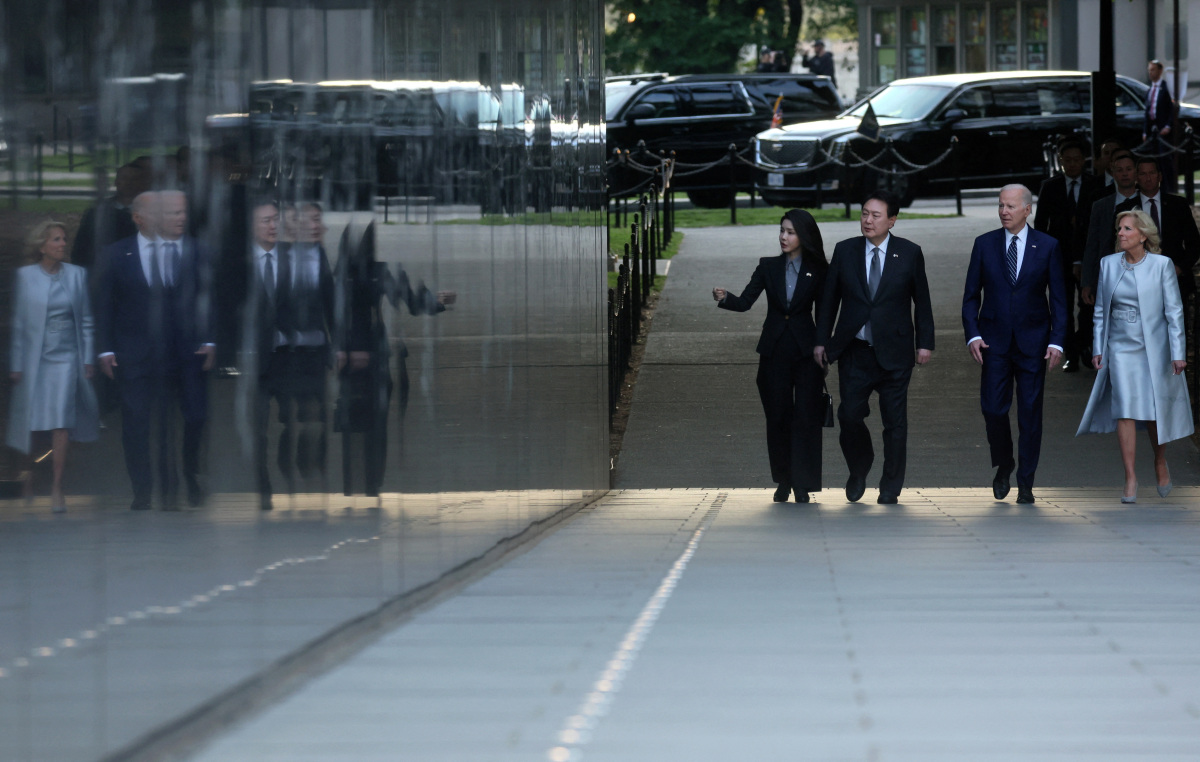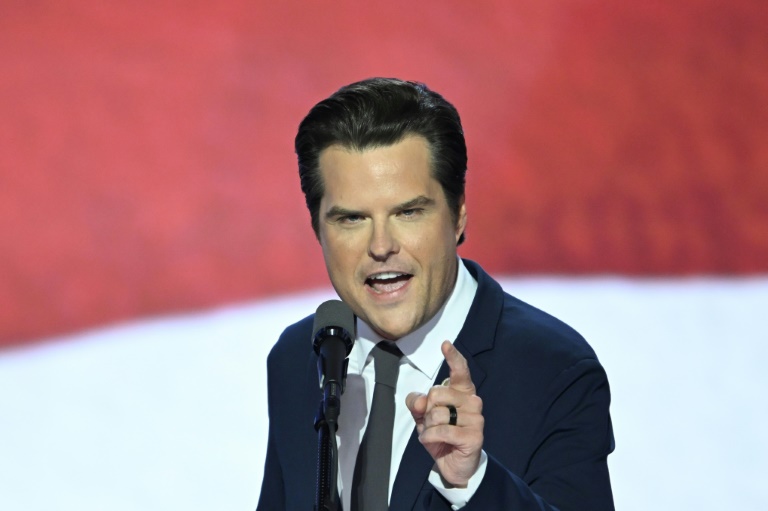KEY POINTS
- Mao Ning called out “US behavior” that she said provoked “bloc confrontation” in the Korean Peninsula
- Mao also said the allied nations should avoid commenting on Taiwan moving forward
- South Korea’s president was previously accused of avoiding Pelosi to appease China
China has criticized the United States over its Washington Declaration that promised stronger ties with South Korea in efforts to thwart North Korea’s nuclear power.
The Chinese government also warned against provocative moves concerning the reclusive country.
“The US has been a source of tension through exploiting the issues on the Korean Peninsula. The U.S. behavior is a result of its Cold War mentality,” said Chinese foreign ministry spokesperson Mao Ning during a press briefing Thursday.
Mao, who was asked to provide a comment on the White House’s plan to deploy a nuclear submarine off the waters of the Korean Peninsula, said the U.S. has provoked “bloc confrontation” and damaged the “strategic interest of other countries.”
“This is the very opposite of the goal to denuclearize the peninsula and we are firmly against this,” Chinese Foreign Ministry spokesperson Mao Ning said on Apr 27 as she commented on the U.S. and the ROK’s move to jointly issue the Washington Declaration on Apr 26. pic.twitter.com/V1RiazEacy
— Pacific Dialogue (@Pacific_Dialog) April 27, 2023
When asked for a comment on U.S. President Joe Biden‘s remarks about a nuclear attack by North Korea against its allies resulting in “the end of whatever regime,” Mao said both the U.S. and South Korea should not “deliberately create tension, stoke confrontation and hype up about threat.”
On the U.S. and the Republic of Korea’s (ROK) joint statement regarding the importance of preserving Taiwan Strait peace, Mao stressed the matter was “purely an internal affair at the core of China’s core interests” and that the U.S. and ROK should “be prudent” when it comes to addressing the issue to avoid “further going down the wrong and dangerous path.”
🇨🇳 @MFA_China on the Washington Declaration:
The US puts its own geopolitical interests before the security of the whole region.
US behaviour is a result of its Cold War mentality.
The very opposite of the goal to denuclearise the [Korean] peninsula. pic.twitter.com/dHy2RKH3V5
— 鳳凰資訊 PhoenixTV News (@PhoenixTV_News) April 28, 2023
Mao’s stark warnings came after South Korean President Yoon Suk Yeol’s state visit to Washington, where the U.S. and ROK reaffirmed support for each other in commemoration of the 70th anniversary of the countries’ alliance.
During Yoon’s state visit that featured a welcome parade and celebrities attending President Biden’s state dinner, the allies unveiled the Washington Declaration.
Under the Washington Declaration, the two leaders established the Nuclear Consultative Group, which will pave the way for further discussions about nuclear deterrence and strategic planning to manage threats posed by North Korea.
Also under the agreement is the U.S. pledge that it will not station any of its nuclear weapons in South Korea and the ROK’s promise that it will not pursue nuclear weapons on its own.
Some analysts have questioned the declaration’s strategic value and whether it holds any power to reassure the South Korean people.
Tonight, President Biden and the First Lady hosted President Yoon and Mrs. Kim of the Republic of Korea for a State Dinner at the White House.
The 70-year alliance between our nations will remain a force for peace and stability for decades to come. pic.twitter.com/xE9MYyf92R
— The White House (@WhiteHouse) April 27, 2023
“I don’t think this will be enough to appease a South Korean public that has increasingly demanded that Seoul develop nuclear weapons of its own,” said Gi-Wook Shin, a Korea expert and sociology professor at Stanford University.
While U.S.-China relations have been packed with tension in the past several years, with back-and-forth comments from the two governments, some observers noted South Korea appeared to have been treading softly when it comes to China.
During then House Speaker Nancy Pelosi‘s visit to Seoul after her Taiwan trip in August last year, Yoon was accused of avoiding a meeting with the former to prevent misunderstandings with China.
Pelosi’s visit had sparked a fierce response from China’s Ministry of Foreign Affairs. In a statement, the ministry said it “firmly opposes and sternly condemns” the visit as it was “in disregard of China’s strong opposition and serious representations.”
Experts said it appears that this time around, South Korea may be indirectly supporting the U.S. in its bid to keep China in check.
“South Korea being able to consult with the U.S. on its nuclear policy towards Northeast Asia and the more regular deployment of strategic assets indirectly support American efforts to contain China,” said Ramon Pacheco Pardo, international relations professor at King’s College London, Korea Times reported.
Yun Sun, director of the China Program at Washington-based non-profit Stimson Center, told the Korea Times that Beijing “will not respond positively” to deterrence planning between the U.S. and ROK.
Yun went on to warn that sanctions on South Korea from China were not impossible as it has happened in the past, not to mention Beijing’s reaction to the joint statement of the allied nations regarding the Taiwan Strait.
Yoon is only the second global leader to have visited the White House under the Biden administration. French President Emmanuel Macron had the honor of being the first leader to be welcomed into the Biden White House.
Reuters






